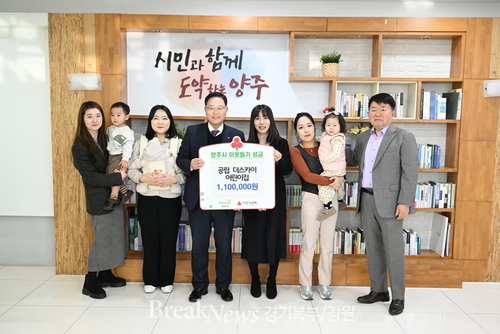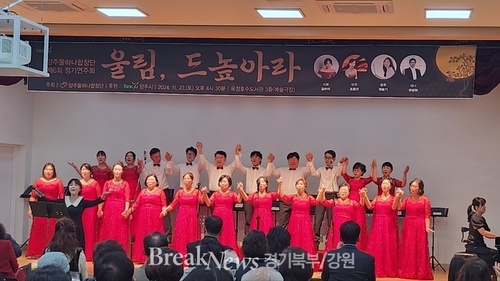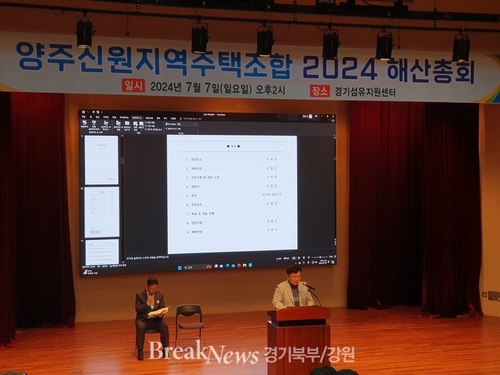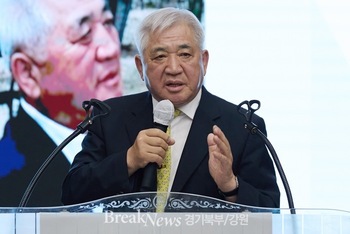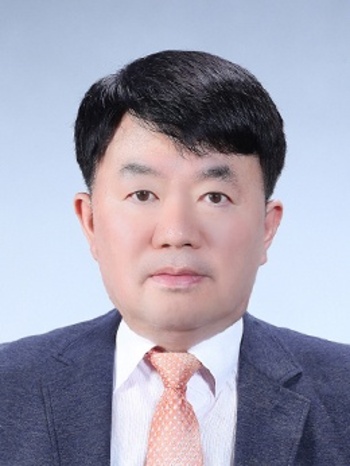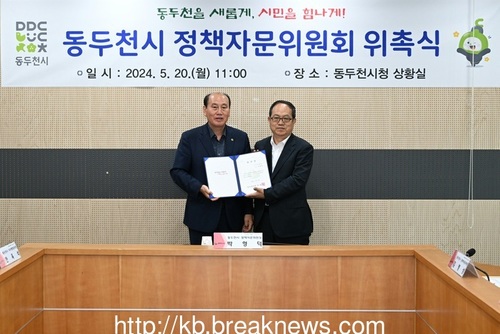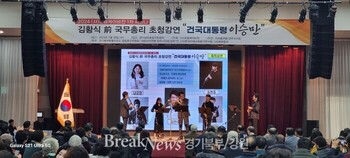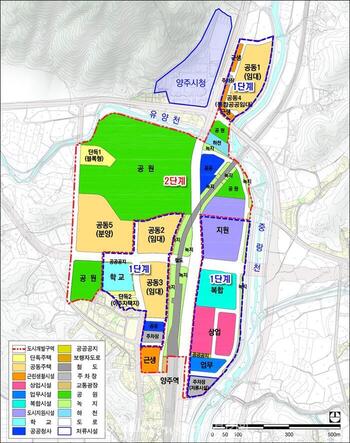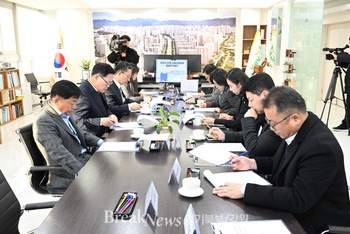시골행 열차에 올라 탄지 꽤 오래되었다. 정년퇴직 후 바로 동승 했으니 말이다. 강원도 영동 최남단도시 삼척시 해안 조용한 곳에 둥지를 틀고 산자락을 깎아 다듬어 온 지 8년의 세월이 흘렀다.
이곳에 정착하기 위한 계획을 하나, 둘 준비를 했지만, 막상 들어와서는 말 못 할 고생을 좀 했다. 소싯적 꿈꾸던 농촌 생활에 대한 자신감도 현실 앞에서는 무력하기만 했다. 농부가 밭을 탓할 수 없으니 굴러온 돌이라 생각하고 이타적 환경과 적당히 타협하며 현실에 만족하며 살아가고 있다.
하지만, 도시민이 바라보는 귀농·귀촌의 매력은 여전히 유효하다. 자유로운 생활과 건강한 삶 추구가 바로 그것이다. 자연의 맛과 향기를 느끼면서 스스로 삶의 주인임을 자처한다. 지난해 통계청 발표 자료에 의하면, 50만 명 넘게 시골행 열차에 올랐다. 또한, 한국농촌경제연구원의 2021년 농업·농촌 국민 의식 조사에는 도시민의 농촌을 향한 꿈이 고스란히 담겨있다. 응답자의 34.4%는 향후 귀농·귀촌을 희망하고 있다고 한다.
이러한 통계 수치를 보면, 귀농·귀촌을 희망하는 인구는 꾸준히 늘어나고 있으며, 추후 지속적인 증가세가 예상된다. 사정이 이러하니 각 인구 소멸 위험지역인 지방자치단체에서 경쟁하듯 귀농·귀촌 희망 도시인을 한 명이라도 더 유치하기 위한 정책을 내놓고 있지만, 정작 귀농·귀촌인의 염원이나 열망과는 동떨어져 있다.
필자는 귀농·귀촌인 성공의 필요조건을 들라면 환경, 사람, 지자체를 꼽고 싶다. 환경은 청정자연과 순박한 농촌다움 그리고 취업, 복지, 교육 등 사회문화적인 환경을 말한다. 사람은 지역 원주민과의 융화력과 귀농·귀촌인 인적 네트워크 인프라로 보면 되겠다. 지자체는 인사권자의 리더십, 소속 공무원의 경쟁력 그리고 유관기관단체를 아우르는 지역 행정역량이다. 이 세 가지 요인이 서로 잘 융화되어 작용한다면 이도향촌(離都向村) 시대에 도시민은 몰려올 것이고 지역은 발전할 것이다.
우리나라는 예부터 금수강산이라 했다. 산과 바다, 강과 호수 등 지역마다 지형상 차이가 다소 있을 뿐 자연환경은 대동소이하다. 도시민을 불러오고 귀농·귀촌인 조기 정착을 위한 각종 지원시책도 정도의 차이뿐 내용은 거의 같다. 결국, 남는 것은 사람이다. 세상살이 사람살이라고 했으니 그럴 만하다. 지자체도 사람이 맡아 운영하고 지역 정서도 그렇고 이미 귀농 귀촌한 이들의 행복도 인간관계에 크게 달려있다. 귀농 귀촌의 성공 요인은 환경보다는 사람들의 관심과 태도에 비중이 실려야 한다는 얘기다.
귀농·귀촌 성공 원동력은 사람이 하는 행정과 민간단체의 협력 관계에서 나온다고 볼 수 있다. 지자체와 귀농·귀촌 단체가 수레의 양 바퀴처럼 같은 방향으로 맞물러 굴러간다면 금상첨화다. 수레를 모는 책임은 역시 행정에 있다. 인구 소멸위험은 벌써 오래된 이야기고 지속적 인구감소는 지역의 존립 기반 자체를 뒤흔드는 일이다.
따라서 자치단체장의 마인드와 정책 의지가 가장 중요하다. 귀농·귀촌이란 말은 화려하지만 실제로 정책의 실효성이 나타나지 않는 경우가 많다. 귀농·귀촌의 긍정적 인식 이유로 '마을 인구증가'가 59.3%라고 통계청 자료에 나와 있는데 말이다. ‘사람이 온다는 건, 실로 어마어마한 일이다.’라고 하지만 이를 소홀히 하고서 지역발전을 논할 의미는 퇴색된다.
사정이 이러하나, 일선 공무원들은 귀농·귀촌인을 여전히 사무적으로 대하고 부서 이기주의를 내세운다. 공무원들이 인사권자 심중을 꿰뚫어 보는 것은 거의 귀신의 경지다. 위에서 관심이 없는데 밑에서 움직이기를 바라는 것은 차라리 기대하지 않는 것이 편하다. 해서 자치단체장의 확고한 의지 표명과 귀농·귀촌 사업을 시·군정 역점 시책 우선순위에 두고 체계적으로 일관성 있게 추진해야만 된다. 귀농·귀촌 우수사례 선진 지자체를 자세히 들여다보면 다 그만한 의지와 숨은 노력이 있음을 발견할 수 있다.
그렇다고 행정이 모든 것을 오롯이 다 할 수는 없다. 귀농은 소득 창출이 있어야 하고, 귀촌은 지역민과의 융화가 선행요건이다. 음식도 먹어본 사람이 안다고 현장 경험을 통해 이미 겪어본 사람이 이 어려움을 푸는 방법을 잘 안다. 귀농·귀촌인들이 권익을 찾고 서로 지식과 정보와 경험을 나눈다면 이미 와있는 사람이나, 오고자 하는 사람들에게 도움이 될 것이다.
공직사회에서 민간은 행정정책의 일방적 소비자가 아닌 현장을 가장 잘 아는 정책개발의 공급자 이자 동시에 소비자인 파트너로의 사고 전환이 필요하다. 어디서나 현장에 답이 있고 시민이 중심이라는 말은 지도자들 입에서 곧잘 나오는 소리니 유념하여 실행하시면 좋겠다는 생각이다.
지방자치는, 곧 경쟁을 의미한다. 귀농·귀촌도 마찬가지다. 제도적 지원 장치를 마련하고 중간 지원조직을 강화해야 한다. 사람은 누구나 '나'를 중심으로 사고하기 때문에 내가 좋아하는 지역이나 사람을 택하는 게 인지상정이다. 식당도 손님이 손님을 부르듯이 집토끼를 잘 활용하면 인구증가 차원에서 산토끼도 얼마든지 불러올 수 있다. 이미 귀농·귀촌하여 지역에 정착한 이들을 중심으로 민간단체 설립 운영의 필요성이 여기에 있다.
식물도 옮겨 심으면 몸살을 앓듯이 사람도 터전을 새로 옮기면 어려움이 생기고 갈등이 싹트기 마련이다. 문제 해결의 실마리를 민간단체에서 먼저 찾아야 하는 이유이다.
귀농·귀촌인은 '잘난 척, 가진 척, 아는 척' 즉, 삼척 하면 안 된다고 하지만, 삼척시 지역에도 작은 변화의 바람이 불고 있다. 지역이 먼저 살아남아야 우리도 더불어 같이 행복을 누리면서 살아야 하지 않겠는가. 민선 8기 박상수 시장 출범에 맞춰 귀농·귀촌인연합회 설립이 필요한 이유다.
삼척시, 귀농·귀촌인연합회 추진위는 회원들의 관심과 동참이 전제되지 않는다면 용두사미에 그칠 염려가 매우 높다. ‘인생도처유고수(人生到處有上手)’다. 상호간 도움을 주고 받을 수 있는 사람이 주변에 많이 존재하고 있다. 다만 이를 연결해 주는 인적 네트워크가 아직 미흡 할 뿐이다. 화합과 사랑, 봉사는 귀한 촌사람(귀촌한 사람)으로 살아가는 생활의 한 방편이 될 수 있다.
삼척시 귀농·귀촌인연합회 추진위에 대한 행정 지원과 협조도 필요한 시점이다. 민·관 각자의 역할과 고유 영역을 존중하고 함께 머리를 맞대는 일이 지방소멸 위험도시에서 벗어남은 몰론 귀농·귀촌의 성공 요인이고 지역민 모두가 상생하는 지름길이 될 것이다.
하고 싶은 일을, 살고 싶은 곳에서 하자는 시대적 추세를 외면할 수 없다. 귀농·귀촌 민간단체의 정체성을 살려가면서 민관협력의 작은 일부터 실천하는 것이 남은 과제다. 미리 준비하는 것은 우리 모두의 몫이고 함께 행복을 누리는 것은 시민의 권리다. 살맛 나는 농촌 어디 저절로 찾아오겠나.
*아래는 위 기사를 '구글 번역'으로 번역한 영문 기사의 [전문]입니다. '구글번역'은 이해도 높이기를 위해 노력하고 있습니다. 영문 번역에 오류가 있을 수 있음을 전제로 합니다.
*The following is [the full text] of the English article translated by 'Google Translate'. 'Google Translate' is working hard to improve understanding. It is assumed that there may be errors in the English translation.
Biography of Sang-ho Lee, Promotion Chairperson of Samcheok-si Homecoming and Returning Village Association (Former) Deputy Mayor of Samcheok City, (Former) Policy Cooperation Officer, Gangwon Development Institute
[Reporter Kim Jun-ho = Samcheok] It's been quite a while since I got on the train for the countryside. It was because I was riding with him right after I retired. Eight years have passed since I built a nest in a quiet place on the coast of Samcheok, the southernmost city in Yeongdong, Gangwon Province, and cared for the foot of the mountain.
I prepared one or two plans to settle here, but when I came in, I had a lot of trouble. My confidence in the rural life I dreamed of as a child was powerless in the face of reality. The farmer can't blame the field, so he thinks it's a rolling stone, and he is living content with reality, compromising with the altruistic environment.
However, the charm of returning to farming and returning to the village from the perspective of city dwellers is still valid. It is the pursuit of a free life and a healthy life. While feeling the taste and scent of nature, they claim to be the masters of their lives. According to data released by the National Statistical Office last year, more than 500,000 people boarded the train bound for the countryside. In addition, the 2021 Agricultural and Rural Citizens Awareness Survey by the Korea Rural Economic Research Institute reflects the dreams of urban residents towards a rural area. 34.4% of the respondents said that they hope to return to farming in the future.
Looking at these statistics, the number of people wishing to return to farming or returning home is steadily increasing, and a continuous increase is expected in the future. Under these circumstances, each local government has come up with a policy to attract at least one more urbanite wishing to return to farming or return home as if competing in local governments that are in danger of population extinction, but it is far from the aspirations and aspirations of returning farmers and returning villagers.
If I were to mention the necessary conditions for success as a returning farmer or returning hometown person, I would like to point to the environment, people, and local governments. The environment refers to the clean nature, simple rural life, and socio-cultural environment such as employment, welfare, and education. Humans can be seen as the ability to harmonize with local indigenous peoples and the human network infrastructure for returning farmers and returning villagers. Local government is the leadership of personnel authority, the competitiveness of public officials, and regional administrative capacity encompassing related organizations. If these three factors work well in harmony with each other, in the era of Ido-hyang-chon, urban residents will come and the region will develop.
In Korea, it has been called Geumsugangsan since ancient times. Although there are some differences in topography, such as mountains and seas, rivers and lakes, the natural environment is largely the same. Various support policies for bringing in city dwellers and for early settlement of returning farmers and returning villagers are almost the same, with only differences in degree. In the end, all that remains is the person. It is worth saying that the world is human life. Local governments are also run by people, and the local sentiment and the happiness of those who have already returned to farming depend greatly on human relationships. The key to success in returning to farming is that people's interests and attitudes should be given weight rather than the environment.
The driving force behind the success of returning to farming and returning home can be seen to be the cooperative relationship between human administration and private organizations. If local governments and groups of returning farmers and returning villagers roll in the same direction like the two wheels of a cart, it will be an added bonus. Responsibility for driving the cart rests with the administration as well. The risk of population extinction is already an old story, and the continuous population decline shakes the very foundation of the region's existence. Therefore, the mind and policy will of the head of the local government are the most important. Although the words “return to farming” or “return to hometown” are glamorous, in many cases, the effectiveness of the policy does not appear in reality. According to Statistics Korea data, “village population growth” is 59.3% as a reason for the positive perception of returning to farming and returning home. It is said that ‘people coming is truly a huge thing.’ However, neglecting this and discussing regional development fades.
Despite the circumstances, front-line officials still treat returning farmers and returning villagers as clerical and promote departmental selfishness. It is almost like a ghost for public officials to see through the hearts of personnel with authority. It is more convenient not to expect anything from the bottom that is not interested in it and wants to move from the bottom. Therefore, it is necessary to express the firm will of the head of the local government and to systematically and consistently promote the return-to-farm and return-to-farm projects as the priority policies of the city and county governments. If you look closely at the advanced local governments, you will find that they all have their will and hidden efforts.
However, the administration cannot do everything on its own. Returning to farming must generate income, and for returning to the village, harmony with local residents is a prerequisite. Those who have tried food know how to solve this problem, and those who have already experienced it through field experience know how to solve this problem. It will be helpful to those who have already come or those who want to come if they can find rights and interests and share knowledge, information and experiences with each other.
In the public service society, the private sector is not a one-sided consumer of administrative policies, but needs a shift in thinking to a partner who is at the same time a consumer and a provider of policy development who know the field best. The saying that the answer is everywhere in the field and that the citizen is the center is often heard from the leaders, so I think it would be good to keep in mind and implement it.
Local autonomy means competition. The same goes for farming and homesteading. Institutional support mechanisms should be prepared and interim support organizations should be strengthened. Because everyone thinks around “me”, it is common sense to choose a region or person that I like. Just as a restaurant invites guests to a restaurant, if you use rabbits well, you can bring in as many rabbits as you like in terms of population growth. Herein lies the need to establish and operate a private organization centered on those who have already settled in the region after returning to farming or returning to the village.
Just as a plant suffers when it is replanted, difficulties arise and conflicts are bound to arise when a person relocates to a new home. This is why private organizations should first find clues to solving problems.
Those who return to farming and returning home say that they should not do 'pretend to be handsome, pretend to have, pretend to know', that is, a small wind of change is blowing in the Samcheok-si area. If the region survives first, shouldn't we also live happily together? This is why it is necessary to establish the Association of Returnees and Returnees to coincide with the launch of Mayor Park Sang-soo for the 8th popular election.
Samcheok City, the Association of Returnees and Returnees, is very concerned that the promotion committee will be nothing more than a yongdusami unless the interest and participation of its members is a prerequisite. It's 'living everywhere in life'. There are only people around you who can give and receive mutual help. However, the human network that connects them is still insufficient. Harmony, love, and service can be a way of living as a noble villager.
Administrative support and cooperation with the promotion committee of the Samcheok-si Association of Returnees and Returnees is also necessary. Respecting the roles and unique domains of the public and private sectors and putting their heads together is the key to the success of Malone's return to farming and returning from a city in danger of local extinction, and it will be a shortcut for all local residents to coexist.
We cannot ignore the trend of the times to do what we want to do, where we want to live. The remaining task is to start with the small things of public-private cooperation while preserving the identity of the return-to-farm private organization. It is up to all of us to prepare in advance, and it is a citizen's right to enjoy happiness together. Where will you find yourself in a rural village that tastes good?
이 기사 좋아요 2
<저작권자 ⓒ 브레이크뉴스 경기북부 무단전재 및 재배포 금지>

댓글
이상호, 삼척시, 귀농귀촌연합회, 이성호, 도시농업, 귀촌, 귀어, 귀농, 인구감소, 지방소멸, 지방소멸위험지수, 민관협력 관련기사목록
|
많이 본 기사
많이 본 기사
|












